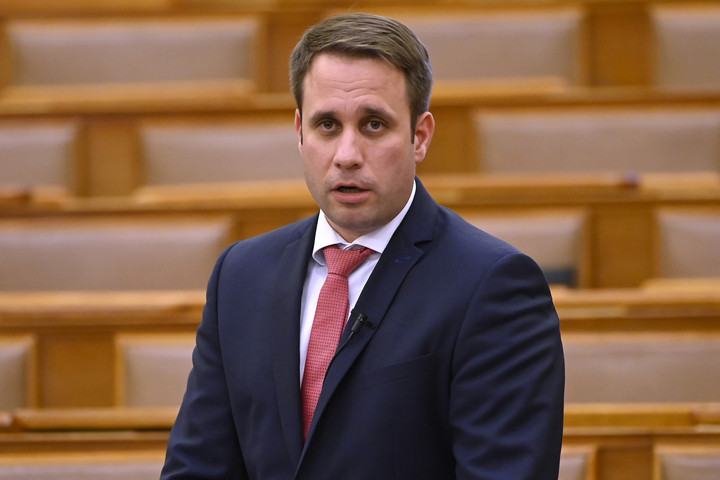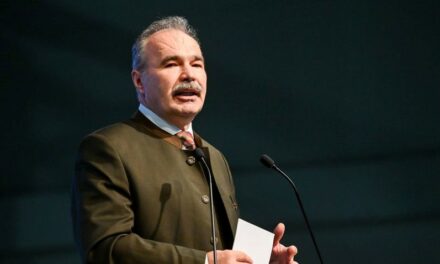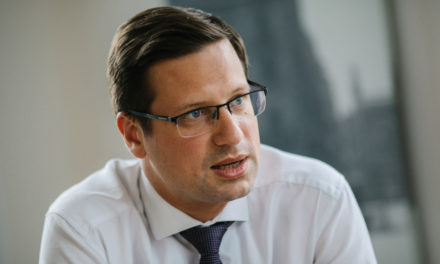The message of the national consultation on Brussels sanctions is clear: fewer expensive sanctions and more input for the people, said Csaba Dömötör, the parliamentary secretary of state for sanctions in the Prime Minister's Cabinet Office, on Kossuth Rádió's Sunday Newspaper program.
In the interview, Csaba Dömötör, referring to the news published by Reuters a few days ago, added that Brussels already wants to propose a tenth package of sanctions covering nuclear energy, which would have "deep consequences" in countries that use nuclear energy in large proportions, such as Hungary.
He said: according to the results of the consultation, 97 percent of respondents do not want to hear about nuclear energy and gas sanctions, but there is no support for oil sanctions either.
He said that despite the sanctions, the war was not over, but "European economic damage piles are getting bigger and bigger". The results of the consultation are expected to be heard in Brussels as well, and there will finally be a change of direction, he said.
He spoke about the deterioration of economic prospects in Europe as a whole, and the biggest slowdown in the European economic area worldwide. According to the OECD's calculations, the economy in the United Kingdom, the Czech Republic and Germany may also decline.
He explained that the economic growth in the European Union as a whole can hardly be slightly above zero, for which the energy situation, with the sanctions behind it, is mainly responsible. The member countries' energy bills have soared, there is supply uncertainty, and the president of the European Commission also estimates that there could be a gas shortage of 30 billion cubic meters in Europe in 2023.
"As the consequences of the wrong policy become more and more obvious, there will be a huge demand from the citizens for a change of direction"
he noted.
Due to the sanction surcharge, Hungary's energy bill will increase from 7 to 17 billion euros, and the government will have to allocate 2,600 billion forints this year with the utility subsidy alone, he added.
Despite all the difficulties, family allowances are being expanded, an agreement has been reached on the minimum wage, and pensions are also increasing, which also applies to the 13th monthly pension coming in February, he said.
He explained that if inflation were greater than the increase in pensions, our elderly compatriots could count on a pension supplement. He explained: the medical salary increase program will continue in January, nurses' salaries will increase in July, and teachers can expect a ten percent increase as well. According to his words, if the EU funds come, it will be 21 percent this year, and a total of 75 percent increase in the next two years.
He emphasized:
considers it a result that in 2022, despite inflation, real wages increased by more than four percent. Inflation must be brought below ten percent by the end of the year
he added.
Regarding the withdrawal of EU funds affecting higher education, the State Secretary stated: an agreement was reached on the Hungarian development programs and the use of EU funds, "we have paper that these programs are good".
The requests made by the European Commission were accepted by the government, and the Parliament adopted 17 amendments in the autumn. Now they are coming up with new conditions, so that the EU does not even have the authority to regulate education.
The Erasmus program will be available to Hungarian students this year and in the future, if the negotiations in Brussels do not lead to a result, the government will provide the necessary amount, Hungarian students will not be disadvantaged, he said.
MTI
Photo: MTI/Tamás Kovács












